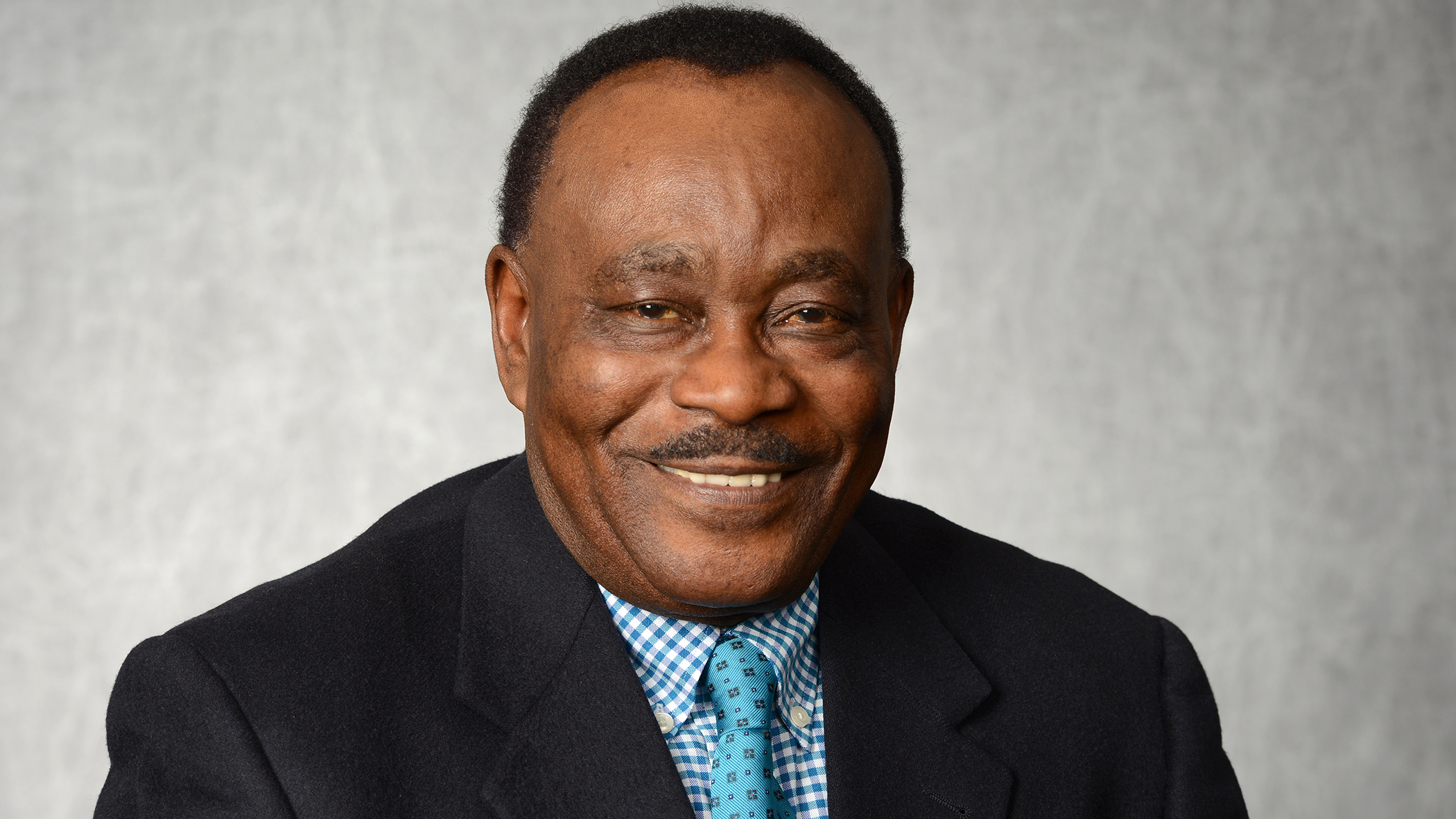Tuesday, May 28, 2019
Dr. Emmanuel Ahia teaches courses in legal and ethical issues, as well as counseling supervision classes
by Keith Fernbach
Dr. Emmanuel Ahia never planned to become an attorney. He immigrated to the United States in 1978 after growing up in war-torn Nigeria and set his sights on a career in the counseling profession.
“I saw much suffering, and a lot of people going through painful situations,” he says of his wartime experiences. “This implanted in my heart the strong desire to help and give people hope.”
He enrolled in Wheaton College, where he received a master’s in interpersonal communication. A few years later he earned a doctorate in educational psychology from Southern Illinois University.
Ahia then spent the next several years working as a counselor, first at Southern Illinois and then at the University of Arkansas. It was always his nature to go above-and-beyond to help every person he was treating, and it was while he was in Arkansas that his experience with one particular client led to an unplanned career turn.
“I had a client who was going through a divorce,” he recalls. “She was experiencing psychological and emotional issues, and as I was counseling her, she was raising all these legal questions that I didn’t know how to handle. So I decided to go to the law school (at the university) to take one course in family law. After taking that one course, I decided to go ahead and get a law degree, because I found that there was a strong relationship between mental health counseling and law that I wanted to develop expertise in.”
Since 1990, Ahia has been a professor at Rider, where he teaches courses in legal and ethical issues, as well as counseling supervision classes in the Department of Graduate Education, Leadership, and Counseling. As one of only a handful of practicing attorneys teaching graduate-level counseling classes, Ahia is able to help his students through the legal issues they need to be aware of when they’re working in the field.
“We discuss the ethics of the profession and of course we consider numerous case law and statutes on issues like child abuse and voluntary commitment — the laws that affect mental health professionals,” he says.
Despite his demanding schedule as a full-time professor, Ahia still finds time to help out in the community by doing pro-bono legal work. Using his expertise as both a mental health counselor and an attorney, he primarily focuses on cases where he can get his clients the treatment they need to prevent future criminal behavior.
For example, he represents people with obsessive-compulsive disorder, which could lead to an act such as shoplifting, as well as clients who have substance abuse issues. The process often involves having his clients evaluated by a mental health professional, and then demonstrating to the court that treatment, and not incarceration, is the best option.
He explains that his pro-bono work is his way of helping people in need who cannot otherwise afford quality legal representation. “I started doing it early in my career when I began to notice people getting into serious legal trouble by representing themselves without understanding the implications of what they were doing,” he says.
In addition to his pro-bono legal work, Ahia also volunteers much of his time serving on the boards of numerous organizations in the mental health field. They include Bethanna, a Pennsylvania-based organization focused on the well-being of children and families, and Penndel Mental Health Center, which provides psychiatric and social services to residents of Bucks County, Pa. He was also previously a board member of St. Mary Medical Center in Langhorne, Pa.
Ahia explains that his giving nature is just a part of who he is. “When people are in need, it’s difficult for me to just look away,” he says. “I try to use my skills to help them. That’s how I was raised. My dad was an elementary school principal, and I grew up seeing my parents care very much about people. And I’m the same way. I get a lot of joy seeing people who are down, get up.”

